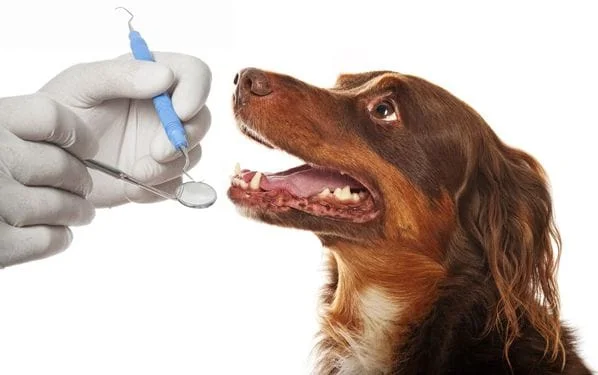When was the last time you had your pet’s teeth cleaned? According to the AVMA, pets who have never had a teeth cleaning have signs of dental disease by the time they are three years old. For that reason, South Tampa Veterinary Care recommends that all pets have regular dental cleaning and yearly oral examination. In general, small dogs under 20lbs should expect to have their teeth cleaned every 1-3 years and dogs over 20lbs every 3-5 years depending on breed, diet, at home cleaning and chewing habits. Cats should expect to have their teeth cleaned every 2-4 years also depending on diet and genetics.

Gum Disease in Dogs and Cats
Dogs and cats are prone to developing the same types of dental diseases and problems as humans, including gingivitis, periodontal disease, tooth decay, staining and cavities. The process of dental decay and disease starts every time your pet eats. When your pet eats, food particles get on their teeth and gums. This fuels the bacteria in your pet’s mouth, causing an acid attack on the enamel of their teeth and creating a sticky, clear substance called plaque. If the plaque is left on teeth, it hardens into tartar. When plaque and tartar are left on your pet’s teeth for an extended period of time, it can lead to gingivitis, periodontal disease, cavities and oral infections.
Signs of Dental Disease in Pets
When it comes to detecting potential oral health problems in pets, owners must be vigilant in noticing changes in behavior. This is because pets often do not act like they are in pain until the pain is severe. If you notice any of the signs below, it is important that you contact us to schedule a dental checkup, teeth cleaning and gum disease treatment.
- Broken or loose teeth
- Discomfort while eating
- Extremely bad breath
- Bloody or puss filled drool
- Swollen or inflamed gums
- Weight loss or loss of appetite
- Swellings of the face
The Hazards of Untreated Periodontal Disease in Pets
Untreated periodontal disease in dogs and cats can lead to dangerous infections, like abscesses and blood infections. Advanced dental disease may also affect your pet’s heart, liver and kidneys. In order to avoid these potentially life-threatening conditions, it is important to keep your pet’s teeth clean with a combination of at-home care and regular veterinary dental cleanings.
Pet Dental Cleanings in Tampa
South Tampa Veterinary Care will perform an oral exam at every annual exam and grade your pet's teeth from a dental grading scale of 1-4 and recommend when to have them cleaned. The dental cleaning, under full anesthesia, consists of dental x-rays, excising any oral masses or gum lesions, electroscaling to remove plaque and polishing the enamel. Afterwards, you can use pet-safe toothpaste and toothbrushes as well as oral rinses and recommended dental chews to keep plaque from building up between cleanings.
South Tampa Veterinary Care also offers an on-site non-anesthetic dental cleaning service for pets that meet the criteria as determined by the veterinarian. Generally, it is larger breed, older dogs with a calm demeanor, no fractured teeth and less than 2 out of 4 on the dental grading scale.
To learn more about our veterinary dental services and how they can protect the health of your pet, call us at (813) 835-8500 today.
